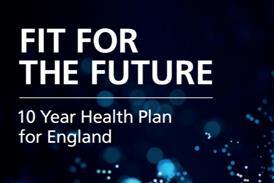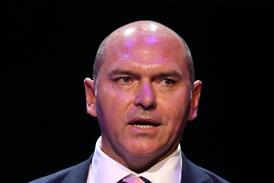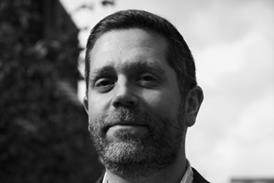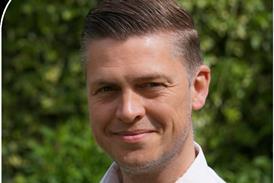- College president warns frontline staff feel “triggered” by ministers’ efforts to play down “overwhelming” pressure
- Ministers and NHSE leaders urged to be “humble and transparent about the scale of the problem facing NHS”
- A&E chief also makes fresh calls for NHSE to publish proper 12-hour waits metrics now
Frontline staff are being ‘triggered’ by ministers playing down the ‘overwhelming’ pressures facing the health service with “a ‘move along, no story here’-type attitude”, a royal college president has warned.
The Royal College of Emergency Medicine’s Katherine Henderson said the intentions of those making such comments may be “well meaning” but that it was important ministers and NHSE leaders were “humble and transparent about the scale of the problem [facing the NHS] at the moment”.
Katherine Henderson said: “The scale of the problem feels quite overwhelming, and the kind of ‘move along, no story here’-type attitude I think is not great for the people working in healthcare. They need to feel heard.”
During a 20 October press conference, health and social care secretary Sajid Javid said current pressure on the NHS was not “unsustainable” and that increased funding given to the NHS was “certainly helping”.
In an exclusive interview with HSJ, she also revealed that Mr Javid had not met the college since he had been appointed in June. A meeting has now been arranged for 3 December.
Asked whether ministers should be more forthright about the challenges in emergency care, Dr Henderson said: “It would be supportive of staff for the problems to be acknowledged. You can see staff are triggered these days by well meaning ‘it’s all OK’-type comments.”
She explained: “People have had a long 20 months. That adrenaline rush of the scariness of the beginning of covid is going into a prolonged adrenaline thing which we know is just not good for people – that’s what leads to burn out. We’ve still got plenty of covid coming in.
“We’ve still got public debate about the rights and wrongs of vaccines, we’ve got people who are antagonistic about wearing masks in hospitals, we’ve got all the stresses and strains of that still going on and [there is] a feeling that we are battling away without perhaps an understanding of just how difficult it is at the moment.”
College’s long wait to meet health secretary
Dr Henderson said the college had also been asking to meet the health secretary since he had been appointed in the summer. She said the college had held regular meetings with Mr Javid’s predecessor Matt Hancock, but that the only time she has met the current health secretary was at a gathering of other royal college presidents at the start of Mr Javid’s tenure.
She did however acknowledge that Mr Javid’s junior health minister, Edward Argar, had met with the college, and that this week a date in December to meet Mr Javid had been proposed.
She said RCEM would like to discuss a range of issues with the health secretary including how ministers communicate with the public, the need to publish data on 12 hours from arrival rather than from decision to admit, flow through hospitals and the need for social care to get more support.
“There’s no reason to think [Mr Javid] isn’t being told what it’s like, but he’s being told what it’s like once or twice removed,” she said. “We can tell him what it’s like on the shop floor. He’s missing the authenticity of the frontline troops.”
Publish proper 12-hour waits now
The proposed new metric on “patients spending more than 12 hours in A&E” is included in the bundle of new urgent and emergency measures currently awaiting approval from government.
Dr Henderson said the new metric would more accurately reflect the true scale of long waits in emergency department, which would have a positive effect on the morale of emergency department staff.
“My feeling is unless we are willing to face up to the numbers it’s very hard for people to come up with solutions,” she said.
Speaking at the NHS Providers conference on 16 November, NHS England chief executive Amanda Pritchard said “that the road ahead looks exceptionally difficult, particularly the next six months” and told staff with concerns about rising demand and quality of care that “I have heard you.”
NHSE national medical director Stephen Powis said on 11 November “there is no doubt pressure on the health service remains incredibly high.”
The Department of Health and Social Care have been contacted for comment.
Source
HSJ interview
Source Date
November 2021



























7 Readers' comments